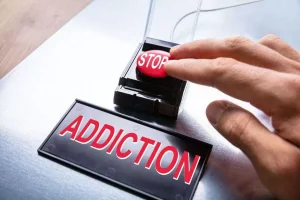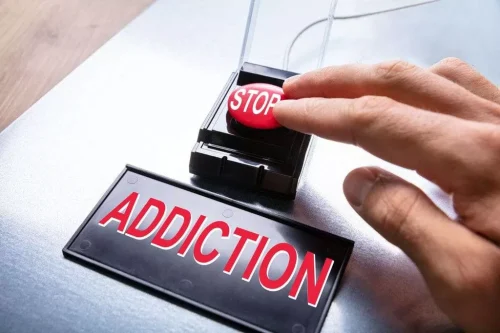
Our expertise tells us that the rise of the “Lo/No” alcohol lifestyle reflects genuine change for Gen Z. BTW, tolerance often goes hand-in-hand with dependence, which is one of the stages of alcohol misuse. If you find that you need more alcohol to feel its effects, it might be time to take a closer look at your drinking habits. why do i like being drunk It’s easy to see alcohol consumption being a result of thousands of years of ritual and a lifetime of habit.
The Importance of Responsible Drinking
- I had to find and get rid of the empty cat food can to solve my cat’s trash can raids.
- As digital natives, Gen Z and millennials are acutely aware of the lasting impact of their digital footprints.
- The incident alarmingly raised the question as to whether he meant what he said—namely, about Jews being responsible for all world wars.
- You may notice an inebriated person stumbling, or having difficulty walking straight – this is because the part of your brain that controls coordination, the cerebellum, is very sensitive to alcohol.
The first two are considered negative drinking motives and relate to winding down—using alcohol to “deal with it,” whatever “it” is for you. The latter two are referred to as positive drinking motives and relate to winding up—using alcohol for fun. One of the most significant cultural changes among younger generations is the reduced stigma around mental health. This shift has been instrumental in encouraging open dialogue about the impact of alcohol on mental and emotional well-being. Mental health awareness has also played an important role in magnifying this shift. Gen Z experiences higher rates of anxiety and depression than prior generations.

Other major factors
When we reference other drugs, we talk about getting a fix, getting high or using. But with booze we’re just ‘getting tipsy’ or ‘feeling a bit merry’. People often think that their personalities change when they’re drunk, and they might even feel very different.

Lifestyle Quizzes
For a deeper understanding of how alcohol affects the brain, you can read this article. You may notice an inebriated person stumbling, or having difficulty walking straight – this is because the part of your brain that controls coordination, the cerebellum, is very sensitive to alcohol. The reticular activating system is an area in the brainstem that controls consciousness, alcohol can dampen this system. If you’re not sure where to start, you can check out Psych Central’s hub on finding mental health support.

However, frequent blackouts can be an early sign of problem drinking or alcohol use disorder. When people are unable to stop or control their drinking, they may black out more often than others. You’ve probably noticed that some people seem to hold their liquor better than others. In fact, you probably know someone who, no matter how much they drink, never seems to act drunk.
- Over time, we may start to drink not because we’re already feeling bad but because we’re worried we might feel bad later, like taking a drink before bed to avoid lying awake worrying.
- Mental health awareness has also played an important role in magnifying this shift.
- And by making this more socially acceptable, they may also be decreasing the negative feedback some people receive for not drinking, although this is a theory that needs testing.
- Physical coordination and cognitive abilities are significantly impaired.
- And that’s particularly true if certain wayward impulses you harbor are anti-social, illegal, or downright criminal.
- Alcohol significantly impairs judgment and decision-making abilities.
- Outside of the nervous system, alcohol can permanently damage the liver and result in liver cirrhosis.
- Delaying emergency care increases the risk of serious health issues, including death.
- When drunk, their levels of intellect and conscientiousness (or self-discipline) change less than they do for other people.
- Many younger people are redefining what it means to have fun without the need for alcohol.
- Alcohol tolerance is not a measure of how unaffected one is by alcohol.
Like other poisons, the body works to rapidly remove it from the blood, which makes a lot of work for the liver and kidneys. It helps to be familiar with the signs of being drunk so you Halfway house know what to expect, when to stop it, and when to get help. When we get sloppy drunk frequently, it can put a strain on our relationships with others. Our loved ones may get tired of taking care of us when we’ve overdone the alcohol, yet again.
Drinking for Enhancement
Your best bet is to ride out your buzz while your body does its thing. If you’re questioning whether enough time has passed since your last drink and if it’s safe to drive, err on the side of caution for yourself and others on the road and find a ride. Certain medical conditions, especially those that affect kidney or liver function, can affect how quickly alcohol is metabolized and how it affects you.
Understanding the Physical Sensations of Being Drunk
Drunk, they become emboldened—now with an autonomous, and possibly outrageous, voice of their own. That a drunk person can say or do something that doesn’t represent some subconscious part of them is a concept that experts have repeatedly questioned. It is impossible to judge how drunk a person will be or feel based on alcohol consumption alone. Your body functions will slow so much that you will fall into a coma, putting you at risk of death. The experience of being drunk can feel different for everyone, but it commonly results in a decrease in inhibitions and a heightening of emotions. “Angry drunks” may experience mild irritation or anger due to alcohol, or become extremely violent or aggressive.

Factors such as body weight, metabolism, and alcohol tolerance can influence how alcohol is processed in your body. It’s crucial to be aware of your own limits and to avoid exceeding them. Alcohol has the ability to impact emotions and behavior, often resulting in changes in mood and personality. Initially, alcohol can induce feelings of relaxation and reduced inhibitions. However, as consumption increases, it can lead to heightened emotions, aggression, and impaired judgment. The goal of using drugs is formed in the same way as any other goal.

